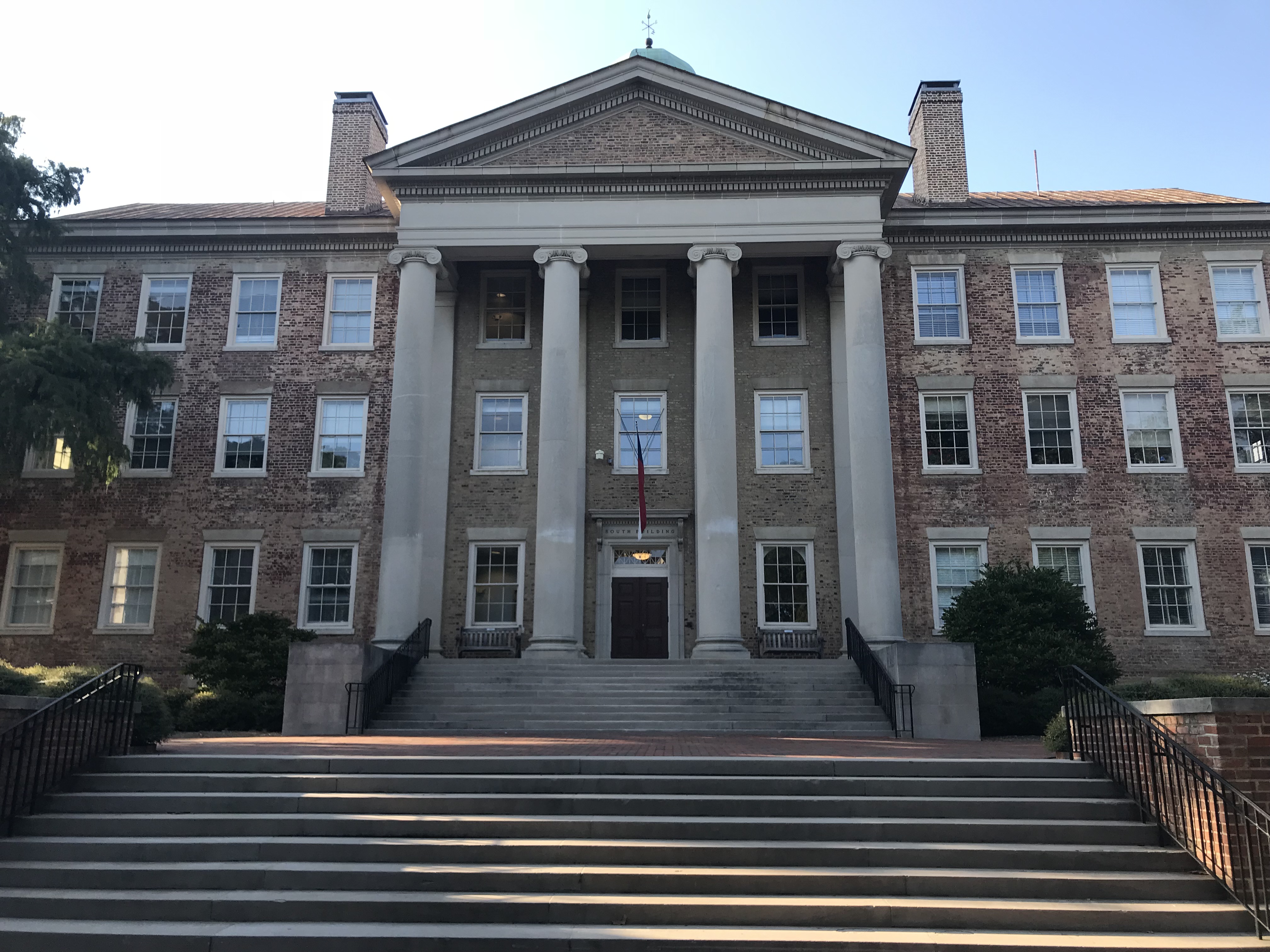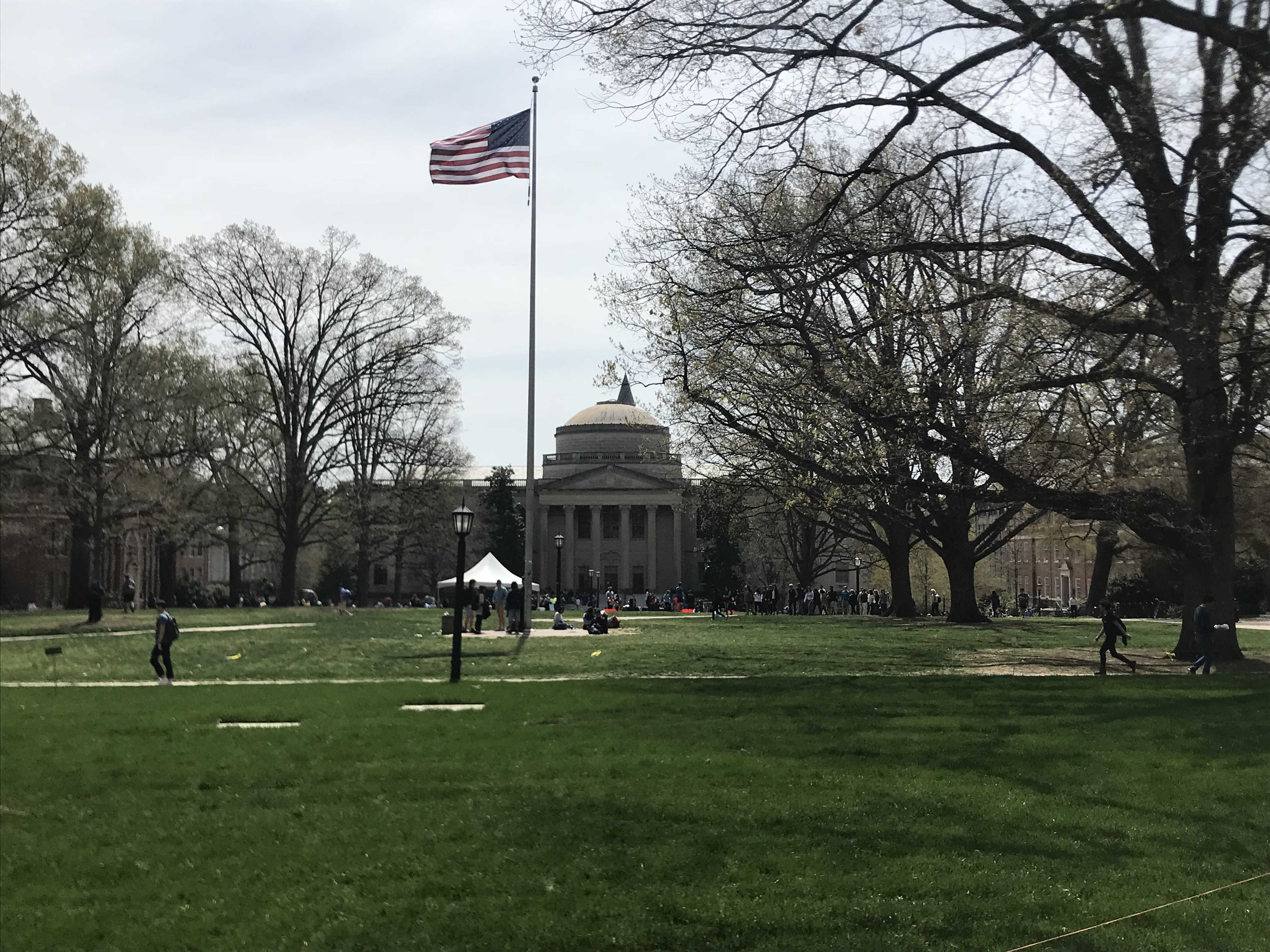Higher Education Institutions across North Carolina contribute over $60 billion to the state’s economy, according to a new study.
Don Hobart, Associate Vice Chancellor for Research at UNC, says the flagship university’s impact on the economy is felt across the Tar Heel state.
“UNC-Chapel Hill actually represents around $7.1 billion. That’s both the university and the hospital and faculty positions here,” he says. “It’s fair to say that UNC-Chapel Hill is really a powerhouse, in terms of its economic impact and its significance to the economy, in North Carolina.”
Hobart says a variety of factors were considered to reach the $7 billion impact.
“The economic impact of the university’s operations, the research spending that it does, the construction activity that takes place,” he says. “[The study] also looked at spending that was brought to the state. And then a portion of that activity was the impact of the UNC Health Care Medical Center.
He says this speaks to the value of the research being done at Carolina.
“We’ve got doctors who are discovering cures for diseases. We’ve got people inventing techniques to improve the quality of materials in products,” he says. “This study looks specifically at what the economic impact, within North Carolina, of having that type of research activity occurring would be.
“The added income to North Carolina’s economy that results from this research activity is close to $1 billion, annually.”
The economic impact report was released on Wednesday; the same day that a Board of Governor’s committee recommended cutting three centers and institutes from the University System. Hobart says this study shows the work these centers do has a positive impact on society and the economy.
“One of the valuable things that comes out of this analysis, is that it certainly validates the emphasis that the university has placed on centers and institutes,” he says. “The research centers, here on campus, are a major part of our effort to translate the work that gets done in labs and the classroom out into the economy.”
He adds this is one area that is a safe investment.
“Spending on higher education is an example of the spending of taxpayer dollars that actually pays the state treasury back,” he says.
According to UNC’s website, the state budget allots nearly $2.5 billion to fund the 17-campus University System.
Overall, the study found that the UNC System had an economic impact of nearly $28 billion in added state income. The entire higher education system – community colleges, private institutions, and the UNC System – in the state contributes $63.5 billion. That is an equivalent of just over 1,000,000 jobs.
For comparison’s sake, agriculture – the largest industry in North Carolina’s economy – contributes nearly $78 billion to the state economy, according to Department of Agriculture Spokesperson Brian Long. He adds that is an estimated 17 percent of the gross state income.
Related Stories
‹

'Everything We Do Has Meaning': Lloyd Kramer Reflects on a Career in the HumanitiesOutgoing Carolina Public Humanities director Lloyd Kramer reflects on his career, and the social importance of history and the humanities.

As Supreme Court Considers Affirmative Action, Colleges See Few Other Ways to Diversity GoalsWritten by COLLIN BINKLEY As an alternative to affirmative action, colleges from California to Florida have tried a range of strategies to achieve the diversity they say is essential to their campuses. Many have given greater preference to low-income families. Others started admitting top students from every community in their state. But after years of […]

UNC, Durham Tech Leaders Discuss Measuring Higher Ed SuccessFor many years, publications have ranked and rated higher education institutions, saying the goal is to better inform people about the value of their education. But after several schools began declining to participate in the latest round of law school rankings by the U.S. News & World Report, more people began questioning their […]

UNC Faculty Fear Political Influence in Recent Admin HiresWith the recent appointment of astrophysicist Chris Clemens as UNC’s next provost and several faculty leaving the university, some faculty members say there is a concerning trend of political influence at Carolina.

UNC Again Ranks Among Best Universities, Best Value in Public Higher EducationUNC has once again been listed by the US News & World Report as one of the top public universities in the country and the best value among national public universities. The university checks in at No. 30 in the overall university rankings, tying with the University of California – Santa Barbara and New York […]
![]()
UNC Board of Governors Approve Chancellor RaisesUNC – Chapel Hill Chancellor Carol Folt is receiving a 6.1 percent salary increase, bringing her annual base salary to $632,810. The increase was approved as part of a vote by the Board of Governors on Friday where 13 of the UNC System’s 17 campus leaders received pay bumps retroactive to July 1, 2017. Folt […]
![]()
Female Professor Sues UNC-Chapel Hill for Sex DiscriminationA lawsuit brought by a female geography professor accuses UNC-Chapel Hill officials of gender discrimination and retaliation for raising concerns of sex and racial discrimination. The News & Observer of Raleigh reports 23-year faculty member Altha Cravey filed a complaint against the university and Chancellor Carol Folt, College of Arts and Sciences Dean Kevin Guskiewicz […]
![]()
Higher Education, Part VIII: FundingUNC's education dean says higher education needs more state funding. Can we achieve this by improving our understanding of what college is?
![]()
Higher Education, Part VII: The Long And Winding RoadOne professor's personal journey offers insights into the road ahead for higher education.
![]()
Higher Education, Part VI: Teaching Over ResearchHow much does today's university value teaching? How much should it?
›






